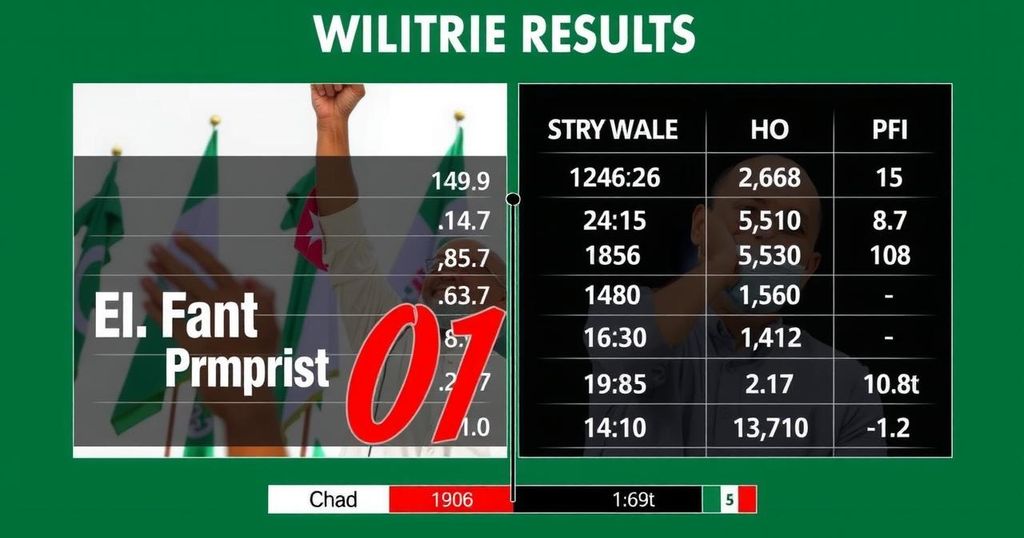World news
2024 ELECTIONS, AFRICA, AHMED BARTCHIRET, ASIA, BOKO HARAM, BURKINA FASO, CHAD, CHINA, COMMISSION, DEBY, ELECTIONS, EUROPE, FRANCE, GOVERNANCE, GOVERNMENT, MAHA, MAHAMAT DEBY, MAHAMAT IDRISS DEBY, MALI, NATIONAL ASSEMBLY, PARLIAMENTARY SEATS, PATRIOTIC SALVATION MOVEMENT, VOTER TURNOUT
Lena Nguyen
0 Comments
Chad’s Ruling Party Dominates Parliamentary Election Amid Opposition Boycott
Chad’s ruling party, the Patriotic Salvation Movement, won 124 out of 188 parliamentary seats in elections largely boycotted by opposition parties. The participation rate was reported at 51.56 percent, with critics labeling the election a ‘charade.’ President Mahamat Idriss Deby claims the elections are a step toward decentralization and democracy, despite ongoing security challenges.
Chad’s ruling party, the Patriotic Salvation Movement, has claimed a significant victory in the recent parliamentary elections, securing 124 out of 188 seats in the National Assembly. This election, which took place on December 29, was largely boycotted by opposition parties, raising concerns about the validity of the electoral process. The electoral commission reported a participation rate of 51.56 percent, which opposition leaders cited as an indicator of widespread skepticism among voters regarding the legitimacy of the contest. President Mahamat Idriss Deby, who became the military ruler in 2021 following the death of his father, claimed that this election is a crucial step towards the promised decentralization and democratization of Chad. However, critics have labeled the electoral process a “charade,” echoing sentiments from the previous presidential elections that were deemed fraudulent by observers. Chad faces ongoing security challenges, including threats from Boko Haram and tense relations with its former colonial power, France, as it navigates a complex political landscape.
The recent parliamentary elections in Chad marked a critical juncture in the nation’s political transition, following decades of authoritarian rule under Idriss Deby Itno. After the elder Deby’s death, his son Mahamat Deby took control, promising to lead Chad towards democratic governance. However, skepticism remains prevalent among the populace and opposition parties, particularly given the controversial nature of previous elections. The current political climate is further complicated by ongoing security threats and a growing shift in alliances, notably with the withdrawal of French military presence, mirroring trends in the wider Sahel region.
In conclusion, the outcomes of the recent parliamentary elections in Chad have reaffirmed the ruling party’s dominance amidst significant opposition boycotts and concerns regarding electoral integrity. Despite claims of democratization, the political atmosphere remains fraught with challenges, as security issues persist and public confidence in the electoral process wanes. President Mahamat Idriss Deby’s administration faces scrutiny both domestically and internationally as it grapples with promises of reform against a backdrop of historical grievances and complex geopolitical dynamics.
Original Source: www.aljazeera.com




Post Comment